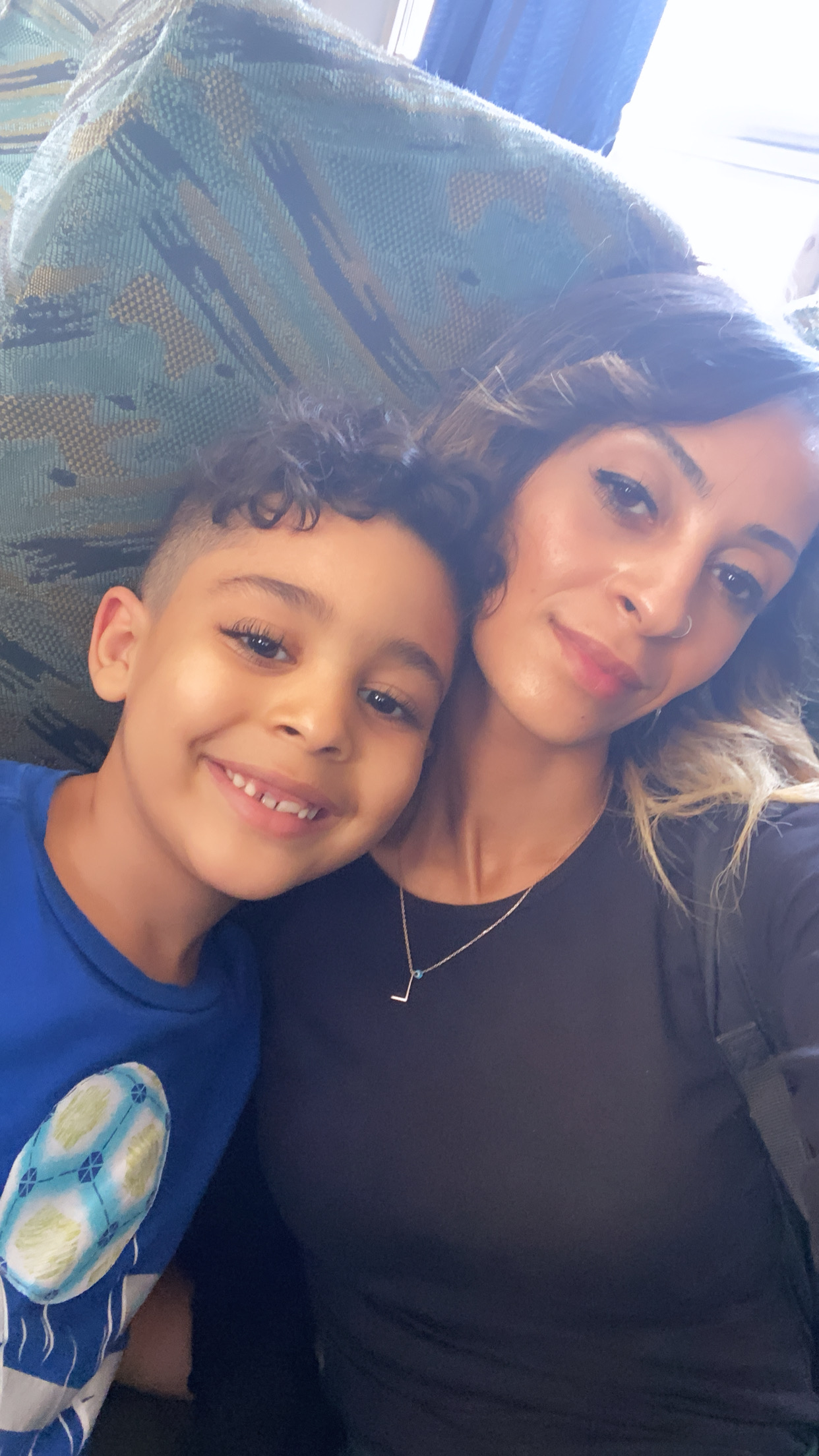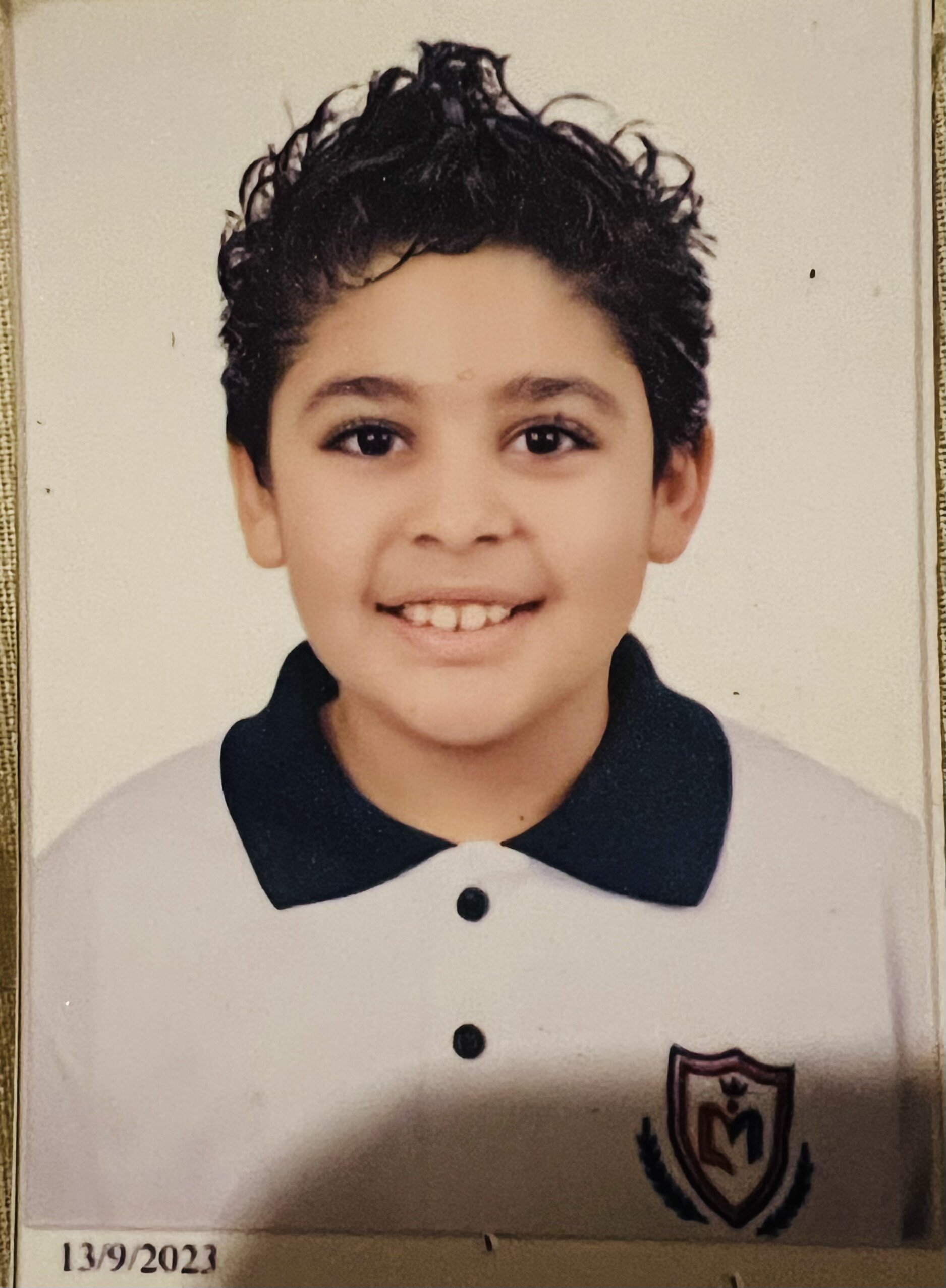From the instant the news of New Cairo’s serial killer, Karim Salim, 37, broke in Egypt earlier this year, his ex-wife, Lobna Yakout, 33, was reduced to nothing more than a silent shadow in his narrative — voiceless and invisible.
The media initially fixated on the statements released by the serial killer, in which he accused his ex-wife of infidelity, calling her a cheater and using a string of derogatory terms, attempting to strip her of any right to custody of their nine-year-old son, Zayn Karim.
Under Egyptian child custody law, the mother is given priority in the early years of a child’s life, with the legal assumption that women are best suited for childcare from birth until the child turns 15. In theory, this grants mothers the primary right to custody.
However, while the law appears clear-cut on paper, it proved far from straightforward for Yakout. She had to endure a protracted legal battle, navigating a web of loopholes and manipulative tactics designed by her ex-husband to deny her custody of her child.
With the support of the National Council for Women and other authorities, as well as her lawyer Ashraf Farahat, Yakout secured a court ruling granting her custody of her son, proving her ex-husband’s accusations were baseless, according to court records reviewed by Egyptian Streets.
“I’ve warned everyone, saying, ‘This man is going to kill me,’ but no one listened. He could easily claim that I’m dead or accuse me of anything, and people would believe him, using it against me,” she tells Egyptian Streets.
However, her court victory has only deepened the crisis: she is unable to locate her son or her ex-mother-in-law, and has now filed criminal charges for kidnapping and violating court orders. Yakout’s mother has also recently reached out to the British and American embassies, urging them to intervene, signaling that international attention is on the case, according to Yakout.
With a long history of attempting to escape and find her son, Egyptian Streets chronicles the timeline of her story below, emphasizing the urgent need to raise awareness about domestic abuse.
Domestic Abuse, Manipulation and Kidnapping
Yakout was born in Egypt but moved to Northern Ireland when she was just one and a half years old. “My dad is a doctor, so we moved there for his studies. I spent most of my life there — my education, my friends, everything,” she explains.
She first connected with Salim through mutual friends in Alexandria because he was one of the few who could relate to her foreign upbringing, having also grown up in Florida. “He spoke English and had lived in Florida, so we clicked. I didn’t meet many people who understood me. At first, he was very charming, what they call ‘love-bombing.’ But things started to change as our relationship became more serious.”
Since 2014, Yakout has been married to him for seven and a half years, enduring years of physical and emotional abuse. “He treated me terribly, and I thought it was just me, so I endured it, mainly for the sake of my son,” she recalls.
Whenever she tried to seek help, no one intervened. “We were officially married at the time, so no one cared. It was like, ‘He’s your husband, he can do whatever he wants.’”
“Even when he dragged me by the hair in public, people just ignored it, like it was normal,” she says.
From the start of their relationship, her ex-husband had been excessively possessive and jealous, behaviors that soon turned abusive. “It started when I had my son, Zayn. He became incredibly jealous of the time I spent with him. The same happened when my sister came to stay; he was jealous of her too. It was always about control,” Yakout explains.
He also used a range of controlling tactics to maintain power over her. “He wouldn’t let me talk to my family when we were together. He’d take my phone away for weeks at a time, and then just sit there with his phone in front of me, smiling, like some kind of childish game,” she recalls.
The turning point came when her sister visited her in Egypt. It was then that her ex-husband began threatening her sister as well, escalating the abuse that had initially been directed at her.
“He told her that if she didn’t leave within a certain time, he’d kill her dog and harm her. That’s when I realized I had to leave for good. I took my son and sister and went to stay with my dad,” she recalls.
When she left his home and they separated in 2020, her ex-husband didn’t contact her or their son for six or seven months. But then his father called, insisting that Zayn see his father.
“I even asked Zayn if he wanted to see him. At first, he said no, but when he was promised gifts like a PlayStation and a new phone, he changed his mind,” she says.
Zayn, only six at the time, was initially indifferent to the idea of reconnecting with his father after months of estrangement.
“His father had never shown any interest in him before — no calls, no money, nothing. It had just been me and Zayn for those six months. But when Zayn said he wanted to see his dad, I told him he needed to be home by 10 p.m. for school the next day, and I told him, ‘If they take you, find your way back to me.’”

After that, Yakout never saw her son again. It’s been over three and a half years since that day, and she has tried everything to reach him, checking social media, contacting his school, and even visiting the campus. “When I spoke to the school staff, they said they thought I was dead because his father had told everyone I was,” she shares.
Her son had even been telling classmates that she had died, repeating what his father had told him.
Yakout continued trying to contact Zayn, sending daily messages and voice notes. However, her ex-husband blocked her on every platform. She also discovered that the lawyer she hired to help her gain access to her son was secretly working for her ex-husband. “I even hired a lawyer, but later found out he was being paid by Karim (my ex-husband), so he wasn’t doing anything to help,” she says.
When they separated, Yakout reflects on the abusive tactics he used to further undermine her and tighten his control. “He took everything I owned, all my furniture, everything in the house,” she says. “And when I still refused to go back to him, he took Zayn, too. So, yeah, he was using all sorts of tactics to manipulate and control.”
Following their separation, she also explains that he was overly possessive when it came to her spending time with other friends, and would accuse her of cheating, even though it was completely normal for her to socialize with both men and women.
“I’d be out with my friends, sometimes with their kids and everything, and he would go and report that I was with a man, despite the fact that they were just my friends, both male and female,” she says.
“Being from the UK, it’s perfectly normal for me to have both female and male friends. It’s not like I only stick to female friends,” she says.
For a year and a half, Yakout fought to reconnect with Zayn, but the situation only grew more dangerous. “The last time I was in real danger, he camped outside my house for four days. I had to wear a hijab and run through the streets to escape him, and my sister had to rescue me,” she says.
It was then that Yakout realized she was no longer safe in Egypt. She fled, seeking refuge in the UK, where most of her family lives. “I just wanted to get to safety,” she says.
Arrest of Serial Killer and Returning to Egypt

When Yakout learned that her ex-husband had been arrested, it was a moment of relief — a long-awaited opportunity to finally feel safe. “For me, that was a miracle. I knew it meant I could go back and get my son without worrying about him trying to kill me anymore,” she says.
After years of being estranged from her son and his family, Yakout reached out to them, hoping to regain custody of her son. “I contacted his family after years of trying to reach them. His mother replied and asked if I was coming to Egypt to get Zayn. I told her I was, and the next day I booked my flight. But when I landed, she disappeared and stopped answering,” she recalls.
Soon, Yakout realized this had been a tactic to learn her plans, not a genuine effort to help her reunite with her son. “It turns out that when he got arrested, he had told the police I was dead in order to give custody of Zayn to his mother. She was granted temporary custody,” she explains.
When Salim was locked up, his earlier actions, including blaming his ex-wife, were part of a tactic to keep her from getting Zayn back, she says. “He wasn’t thinking about what he’d done. He always thinks he’s going to get away with it. Like he’s gotten away with everything, his sexual crimes in the U.S., which his mother helped him avoid,” Yakout says.
The battle for her son’s custody was long and arduous. Yakout initially turned to Egyptian media to raise awareness of her case. She appeared on Amr Adib’s Hekaya, a popular talk show on MBC Masr, and later on Sabaya with Reham Saeed on Al Nahar.
“I didn’t want to go public. It wasn’t easy for me because I’m not comfortable speaking Arabic in public. But it helped because it brought attention to my case. I also appeared on other news channels, but people didn’t take me seriously. Instead, they mocked me, called me names, and accused me of things I hadn’t done,” she says.
Instead of focusing on her case, the public mainly ridiculed her appearance and speech. “Ninety percent of people mocked the way I looked and talked, ignoring the real issue. And the other 10 percent accused me of cheating on him. But honestly, if he caught me cheating, does that justify everything he did? I’ve been able to prove my innocence against all his false accusations,” Yakout explains.
After her appearance on Amr Adib, the National Council for Women stepped in to assist with the legal paperwork, helping her secure full custody of Zayn, including his education.
“The court procedures are slow. When I needed the custody papers, I had to go to court multiple times. It took weeks to get a simple document. I’d spend hours, sometimes up to 10 hours, going from one office to another,” she says.
Since gaining custody, Yakout and her lawyer have filed a criminal charge against her ex-mother-in-law for not following court orders and providing a false address to avoid returning Zayn. “She’s not complying with the court, and she’s giving false information to keep Zayn away from me,” she says.
Authorities have since been searching for Zayn and his grandmother. A police task force came to the grandmother’s house to retrieve Zayn, but no one answered the door.
About a week ago, Yakout started a TikTok account to reach her son directly. Her videos have since garnered over 20 million views and gained attention from global outlets like People magazine. “I didn’t want to go public before, but it felt like the only way to get the attention I needed,” she says.
Since then, the situation has escalated. “Things have gotten more serious. I started getting death threats a few days ago, and that’s when everything felt a lot more dangerous. I’m scared,” she says.
Yakout also fears that her son’s documents could be tampered with to further prevent her from reaching him, just as her ex-husband’s past legal issues were manipulated. “Her son was locked up for sexual violence in the U.S., and he was put on probation. His mother changed the name on his passport and brought him back to Egypt. She could do anything to my son out of spite,” Yakout says.
With her son still missing, Yakout believes that the legal process needs to be faster and more efficient to address these situations and prioritize the needs of children.
“After I get Zayn, I want to advocate for women’s rights because I’ve seen firsthand how little support there is, especially for women in abusive relationships,” Yakout says.
At this point, Yakout is pleading for intervention at the highest level, desperate for a resolution.
“I just need help, and I need it from the top. I feel like I need President Al-Sisi himself to intervene because no one else seems to care. I’m Egyptian too—my blood is Egyptian, I was born here—but now I’m scared to live in my own country,” she says.


